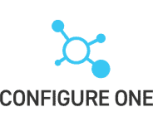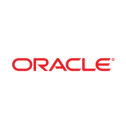CPQ Software for Midsize Businesses
What is CPQ for Midsize Businesses?
CPQ (configure, price, quote) for mid-sized businesses is an automated quoting application that addresses the unique operational and sales needs of mid-market companies. Since they have complex structures and processes compared to smaller companies, these organizations have distinct requirements. But they normally don’t need the full-scale solutions large corporations do.
Mid-sized business CPQ is specifically designed for the following:
- Advanced customization and flexibility to support complex product lines and sales processes
- A balance between functionality and usability, providing more robust features than base-level software without overwhelming users
- Integration capabilities for enterprise resource planning (ERP) systems, customer relationship management (CRM) software, billing, ecommerce, and other business management tools
- Scalability, whether that’s by adding more products, entering new markets, adding new features/integrations to the system, or increasing the size of the sales team (i.e., number of users)
- Good value for the additional investment, which includes advanced analytics, AI-driven recommendations, and more sophisticated quote management tools
- Support for complex sales cycles, which involve multiple stakeholders and decision-makers
- Comprehensive training and support to help sales and operations teams integrate and use CPQ effectively
- Analytics and reporting features that highlight sales trends, customer preferences, and operational efficiencies
CPQ for mid-sized businesses offers a healthy balance of advanced features and user-friendly operation, tailored to the complexity of their products and sales processes while providing scalability and integration capabilities essential for growing businesses.
CPQ Solutions for Enterprise Organizations
DealHub CPQ Overview
Salesforce CPQ Overview
Configure One CPQ Overview
HubSpot CPQ Overview
Epicor CPQ Overview
Oracle CPQ Overview
Conga CPQ Overview
Pricing and Quoting Challenges of Midsize Businesses
A mid-sized company can be defined using two overlapping parameters: revenue and headcount.
- According to Gartner, a mid-market company normally has between 100 and 999 employees.
- Hewlett Packard states that a mid-sized organization does between $10 million and $1 billion in annual revenue.
The 350,000 mid-market companies in the US account for roughly one-third of the GDP. And they accounted for 60% of pre-pandemic job growth.
With a combined annual revenue of more than $10 trillion, these are the companies that are large enough to make a huge difference on the economy, even at the individual level. While they aren’t anywhere near the world’s largest companies, this entails a certain level of complexity in their processes and structures that smaller companies don’t have to face.
Broadly, mid-sized businesses primarily struggle with outdated, manual processes, pricing inaccuracies, product complexity, and inconsistencies in sales workflows.
Manual Quoting Processes
Believe it or not, many mid-sized businesses still rely on manual processes to generate sales documents. They use spreadsheets and equations for the creation of sales quotes. Then, they transfer the info to a Google Doc or Word document that they attach to an email and send to the customer as a contract.
Of course, this is time-consuming. But it’s also error-prone. There’s simply no way your sales team can send accurate quotes, turn those quotes into contracts, purchase orders, and BOMs, and get the contract through execution every single time.
For the business, this means:
- A less personalized customer experience
- More friction in the sales process
- Greater lead time at every step of the quote-to-cash process
- Fewer closed deals
- Security issues (from sharing sensitive documents over email)
- Increased probability of quoting mistakes
- Inefficient use of sales reps’ time
Sales reps spend just 36% of their time selling. The rest of the time, they’re doing admin work, which includes data entry and the creation of sales quotes.
Inaccurate Pricing
For mid-sized companies, even a small mistake could cost tens of thousands of dollars in lost revenue, damaged relationships, and wasted resources.
Let’s say you’re a contract manufacturer for CPG brands. You just inked a deal with a new customer that’s looking to produce 10,000 units of a product. You’re churning through the paperwork and processed the quote but your sales rep mistakenly closed them at a price that’s too low.
By the time you catch the mistake, you’ve already ordered the materials and set aside production capacity. You can either ask the customer to pay up, which can damage your relationship with them. Or you can take a margin hit and carry out the contract.
With product rules and guided selling in manufacturing CPQ, this is never a problem. An admin can set up rules that automatically calculate pricing (accounting for volume discounts, special promotions, and other variables like profitability). In the seller’s interface, they only see configuration and pricing options that are (a) possible and (b) feasible for your business.
Complex Product Configurations
As technology becomes more advanced, businesses can use theirs to serve more customers. For a SaaS company, that might mean implementing tiered pricing and adding a user-based component. For a medical device manufacturer, it might mean saying “yes” to a complex configuration and continuing to innovate with that customer.
As a mid-sized business, your ability to serve your total addressable market (and, by extension, grow your business) is limited by your ability to provide what it is they’re looking for. With insufficient tools for guided selling, quoting, and document generation (plus specialized features like subscription billing or CAD automation), you’ll never take off how you’d like.
Inconsistent Sales Workflows
At the mid-market level, a lack of structure is one of the top challenges B2B sales teams face. Your sales reps might offer a rogue discount to close a deal they’ve been working for months. Or, a new SDR might have no idea how to systematically move prospects through the sales qualification process.
If you aren’t using CPQ, you don’t have any way to regulate things like discounts, approvals, and contract compliance. And you won’t be able to create a sales playbook the whole department can use.
Benefits of CPQ for Medium-size Businesses
Greater Quote Accuracy
Of course, the clearest reason to invest in CPQ is because it’s the only way to deliver error-free quotes to your buyers 100% of the time. While a clerical error might slip through the cracks on a spreadsheet (it could be as simple as typing the number “4” instead of “5” on an account), CPQ eliminates that possibility.
With product rules in CPQ, an admin inputs specifications for product configurations, bundles, prices, and discounts/price breaks before you even launch your sales process. Whenever your reps are working with customers, they’ll only see options that are in line with the rules you’ve created. And, if a special situation comes up, it’ll know to escalate it to a leader for approval.
Quote-to-Cash Automation
Quoting is really just the first part of the quote-to-cash process. After the sales rep and customer agree on contract terms, there are still many administrative tasks that need to take place before you can call the deal “closed,” process payment, and execute the contract.
- First, you need to get your decision-makers on the same page about your pricing.
- Then, you’ll create a sales proposal, complete with terms and conditions.
- You’ll negotiate back and forth with your buyer and make amendments to the proposal until you reach an agreement.
- Finally, you’ll have everyone sign the final version of the contract.
- From there, you can execute it. For a SaaS business, this might mean setting up recurring billing. For a manufacturer, it could be generating a BOM and getting production rolling.
Yes, these are all manual processes requiring collaboration between the buying and selling teams. But CPQ bridges the gaps with automation.
From the data you’ve entered once, it automatically generates…
- proposals from quotes
- contracts from proposals
- BOMs, purchase orders, and invoices from contracts
…and allows you to store them all in one place, securely in the cloud.
During negotiation, your buyer, sales rep, and deal desk team can use CPQ’s intuitive quote builder to make changes and leave comments. When you’re ready, they can sign it within the platform, so you don’t have to chase them down for a wet signature or scan and upload copies.
Higher Sales Productivity
Research shows that using CPQ results in 10x faster quote times, a 95% shorter approval process, and 30% faster ramp times for new sales reps. This is the single best way to enable a more productive sales force for mid-sized businesses that aren’t using any sophisticated tool for generating and managing sales documents.
It’s also worth mentioning CPQ provides medium-sized businesses with greater flexibility and agility in their sales processes. With CPQ, you can quickly make changes to your pricing, product offerings, and sales workflows to adapt to market demands or customer needs. So, you can use it to identify and improve in areas where sales efficiency is at its lowest.
Shorter Sales Cycle Times
In addition to running a more productive sales operation, implementing CPQ can bring your sales cycle time down by 28%. This is because CPQ streamlines the entire sales process, from quote generation to contract execution. With all necessary data and documents in one place, there are fewer delays and errors that prolong the sales cycle.
Data Synchronization Across Tools
CPQ integrates with:
- CRM
- ERP
- Billing
- Subscription management
- CAD systems
- Ecommerce platforms
- Supply chain management software
- Procurement solutions
When you enter, update, or delete data in one system, it’s immediately reflected across all your integrated tools. This is hugely advantageous because it means the product availability information you see in CPQ will always be accurate. It also means you won’t have to manually transfer data between systems, which can lead to human error.
Accurate Analytics, Reporting, and Forecasting
You can use the reports generated by your CPQ solution to identify opportunities for sales improvement or pricing optimization. But CPQ data is about as close to the money as you can get (it’s literally tied to quotes, contracts, and invoices). So, you’ll also use it for forecasting and predictive modeling.
When all your tools share data with one another, you’ll have a single source of truth. This makes every financial report or sales forecast you generate far more reliable since they’re based on real-time data from your CRM, ERP, and CPQ tools combined. When company leaders and stakeholders make high-level decisions, they’ll be working from the most accurate data possible.
Integration with CRM and Billing
Two of the most critical integrations for CPQ are with your CRM and billing solutions.
- CRM-CPQ integration makes it so your quoting system has access to all your customer data and can automatically update each customer’s profile when an action is taken.
- CPQ and billing work together to maintain accuracy between what you quoted your customers and what you’re charging them. When billing, CPQ automatically generates the invoice for every purchase your customer makes as well.
What is CPQ for Midsize Businesses?
Low-Code Solution
Mid-market companies generally don’t have in-house IT teams to maintain their CPQ solution, nor do they need one. Modern CPQ for mid-sized businesses is designed for flexibility, customizability, and scalability with minimal technical overhead.
With low-code software, you can:
- Create custom quote templates and branding
- Update pricing and product offerings in real-time using the admin panel
- Quickly configure workflows that fit your specific sales processes without relying on IT support
- Tailor certain UI elements to suit the needs of your business
This brings down CPQ implementation times, increases user adoption, and makes it easier to onboard new reps.
Robust Platform for CPQ and Contract Management
When you’re taking on larger contracts (and more of them), the management of quotes becomes just as important as their creation. That’s why the best CPQ solutions for medium-sized businesses also offer contract management features.
Contract management enables you to:
- Create, store, and manage all contracts in one place
- Access all relevant information and data from your quotes automatically (no manual input required)
- Monitor contract performance and status with real-time alerts
- Store templates to create new contracts quickly
- Collaborate with team members on contract negotiation and approvals
- Manage contract execution and compliance
Subscription Management
For SaaS companies and retainer-based agencies, managing subscriptions and recurring billing is incredibly complex. In addition to fixed prices, there are tiered and usage-based components to every pricing model. And, for every customer, you’ll either handle a different billing cycle or have to manage proration.
If recurring revenue is your primary income source, you need a CPQ tool with a subscription management function.
CAD and Supply Chain Integration
For manufacturers, distributors, or any company with a complex sales process and product catalog, CAD and supply chain integration is essential.
CAD automation is what enables you to visually configure intricate products and get them over to your engineering team before production. Supply chain portal integration helps you manage your inventory and vendor relationships by providing real-time data on product availability and stock levels.
Adaptable to Complex Pricing Models
Mid-size companies almost always sell with a degree of product complexity basic spreadsheets or standard quoting tools simply can’t handle. Your CPQ software should be able to easily manage multiple pricing models, like:
- Cost-plus
- Priced based on quantity or volume discounts
- Differential pricing for different regions or verticals
- Bundling and upselling options
Alerts and Notifications
CPQ software is a real-time engine, giving you constantly updated quotes and contracts based on your changing pricing and product info. But it can also give you alerts and notifications for when certain conditions are met.
You might use CPQ alerts to flag discounts that exceed an acceptable threshold for one of your products. You can also use it to warn you when a quote hasn’t been updated for a specified amount of time.
Automated Approvals
Automated approval workflows eliminate a significant amount of the lead time associated with processing quotes, proposals, and contracts with terms that fall outside the regular scope of a sales rep’s authority.
With CPQ, you can configure approval workflows to automatically trigger when they meet certain conditions, like a welcome discount over a certain percentage for a high-value prospect.
Seamless Integration with Business Tools
Don’t make it all the way to launching your new sales motion only to find out disjointed data is creating more problems than your CPQ is solving. Modern solutions should seamlessly integrate with your existing tech stack. If a platform you’re evaluating doesn’t have out-of-the-box solutions for the tools you already use, it’s going to be extremely difficult to see the ROI.
FAQs
Any business that sells complex products or services, has a long sales cycle, offers multiple pricing or product options, or still uses spreadsheets and text documents for quoting will benefit from CPQ. This includes manufacturers, retailers, ecommerce stores, service providers, distributors, or any business where customers need accurate price quotes.
CPQ software serves businesses in B2B and B2C sectors, though it serves them differently. In B2B settings, CPQ is a tool for sales teams, who work with decision-makers to configure customized solutions. In B2C, CPQ streamlines the buying process and provides customized pricing and product options for individual customers, usually in a web-based interface.
Data shows that 83% of businesses are using some form of CPQ. This makes it a highly in-demand tool for businesses of all sizes, including startups, small businesses, mid-market companies, and enterprises.

Andrew is a professional copywriter with expertise in creating content focused on business-to-business (B2B) software. He conducts research and produces articles that provide valuable insights and information to his readers.







